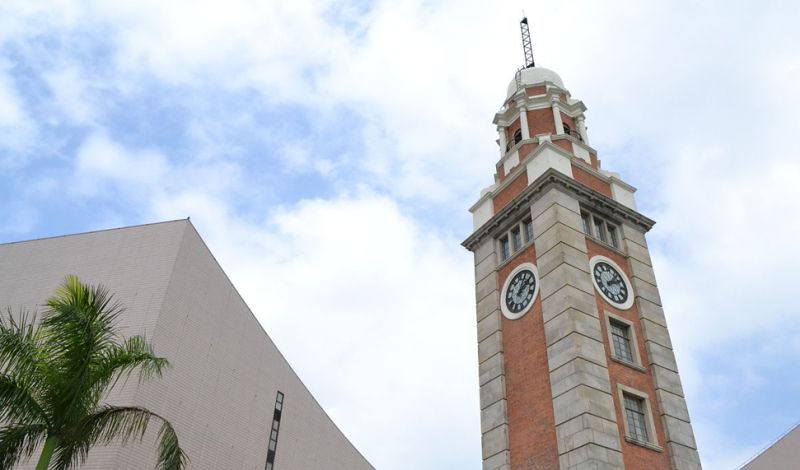The pro-independence Hong Kong National Party has said that it will go ahead with its vigil on the eve of the 20th anniversary of Hong Kong’s transfer of sovereignty, in spite of a ban issued by police.
On Wednesday, the police issued a formal notice to the group banning the planned gathering at the Tsim Sha Tsui Clock Tower on June 30. A police spokesperson cited both public order concerns and the event’s potential conflict with the Basic Law – Hong Kong’s mini-constitution – as reasons for the ban.

Speaking to reporters on Thursday, convener Andy Chan Ho-tin said that the ban was unconstitutional, and that police exceeded the limits of their power by prohibiting the event.
“[I] asked whether we would still be banned from holding the event if we changed the venue,” he said. “The police very clearly answered: yes.”
“This means that because of the Hong Kong National Party’s political views, we will very likely be unable to hold any public events or assemblies.”
‘Maintenance works’
Chan said last Monday that he wanted to hold a vigil at the tourist site to mourn 20 years since the “fall” of Hong Kong. He added that the vigil would be peaceful, and consist of music, speeches and the broadcasting of video clips. He expected 300 to attend.
But last Friday, the police told Chan he will not be able to hold the event at the venue, as the Leisure and Cultural Services Department will conduct maintenance works there the same evening. The department told HKFP it needed to prepare the venue for the public to watch fireworks at Victoria Harbour on July 1.

Chan said on Thursday that he filed an appeal against the police ban in the morning, and feels confident that he will succeed.
He said that he was nevertheless prepared to face criminal responsibility for holding the gathering: “I feel I have the responsibility to… defend Hongkongers’ basic human rights.”
See also: HK20: Celebrations & demonstrations – a guide to Hong Kong Handover events
Chan claimed that the “One Country, Two Systems” policy of autonomy has deteriorated to the point where basic freedoms, such as free speech and assembly, are not protected.
“Hong Kong has fallen back to what it was a century ago. Back then, there was no freedom of speech. Women weren’t even allowed to vote.”

